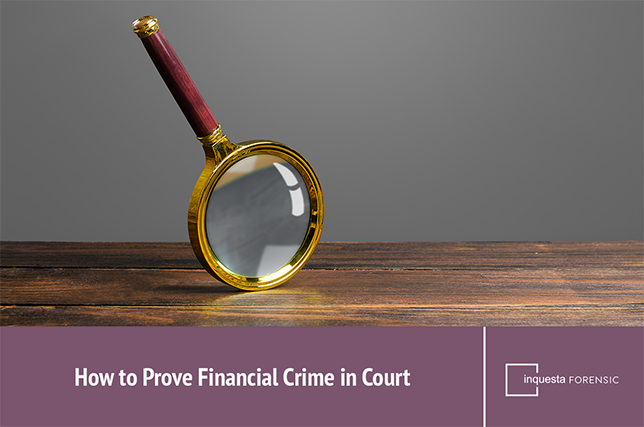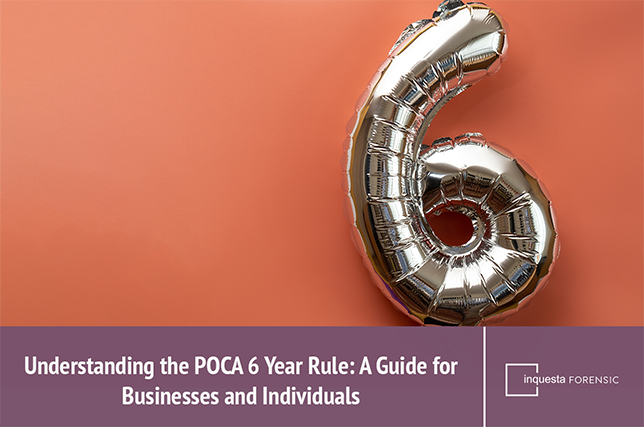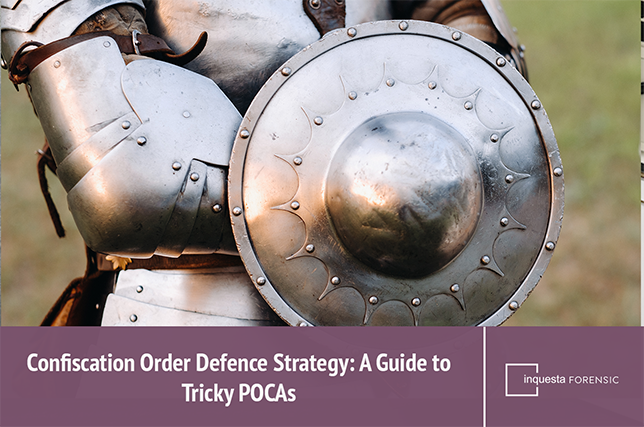The issue of tainted gifts in relation to confiscation proceedings is something on which we are regularly instructed.
In a recent case [R v Peter Morrison [2019] ECWA Crim 351], the question of repayment of tainted gifts arose. From an accounting perspective, this may provide some clarity for certain circumstances.
Case Summary
Mr Morrison was subject to a confiscation order of £1,923.63 on 5 June 2018.
He had previously transferred £38,200 to his then partner to purchase a property. Of this sum, £30,000 had been obtained from his offending.
The property was purchased under the Right to Buy scheme. However, a clause in the agreement required a repayment if the property was sold within 5 years.
In the original confiscation, it was accepted that the money transferred was a tainted gift. However, evidence was given that Mr Morrison had no interest in the property and no power to force a sale. Further, his partner was not in a position to sell the property as she would have had to repay part of the deposit to the council, which would have left her and her children homeless.
The Recorder stated that, if Mr Morrison was ordered to pay the tainted gift, he would have no means of doing so. He further commented that the Court would be setting up the Defendant to fail, which would be wholly disproportionate. As a result, no order was made for tainted gifts.
An appeal was lodged.
It was argued that the Recorder had confused the issue of proportionality with the wider notion of potential hardship or injustice to third parties and the question of whether the property could be sold, with the question of whether it would be sold. It was submitted that in this case the property would not be sold, but that it could have been sold.
The appeal was allowed, and the Court varied the confiscation order to include the tainted gift.
Commentary
This case appears to make a clear distinction as to whether, when a tainted gift is in the form of property, the property could be sold to raise monies to pay the confiscation order versus whether the property would not be sold.
It seems to allow for an argument that, where the Defendant is in a position where it would be impossible for him to raise the funds to pay the tainted gifts, that they should be removed from the available amount.
I have previously been asked to consider whether a tainted gift is still in the hands of a third party or whether it has been spent. From a general perspective, the Prosecution rarely accepts this argument on the basis that it is a matter for the Defendant to repay the tainted gift, not the third party to whom was transferred.
However, on the assumption that the Defendant’s assets are covered in the available amount and he has no other means of raising money, it seems that considering the availability of the tainted gifts, and the ability of the recipient to raise funds to repay it, may now have some merit.
It should be noted that the Judge commented on the fact that a confiscation order is made in personam. It is not an order made in respect of any particular assets, but one issued against the Defendant. In a confiscation order, it is therefore worth considering whether the Defendant can raise any funds to pay the order, regardless of which assets have been identified by the Prosecution.
- Your Partner’s Been Convicted: Can They Take Your House? What Section 10a POCA Means For You
- The Essential Role of Forensic Accounting in High Net Worth Divorce
- How to Value a Startup Business: A Guide for UK Entrepreneurs
- Pig Butchering Scams: Guide to Crypto Romance Fraud
- Shareholders’ Disputes: How Business Valuation Helps with Shareholder Dispute Resolution








